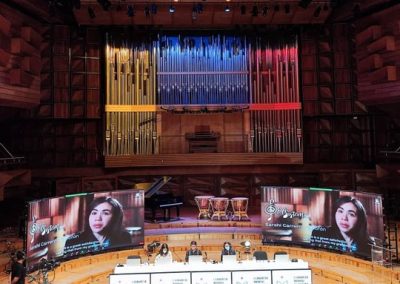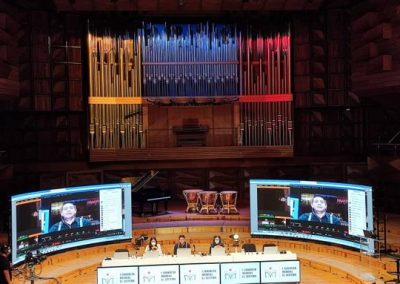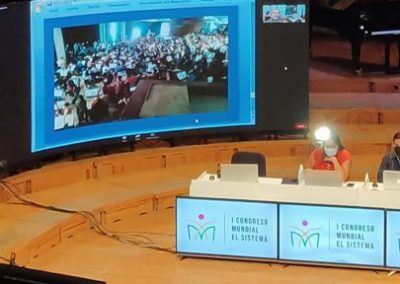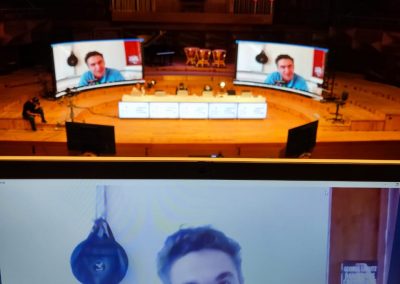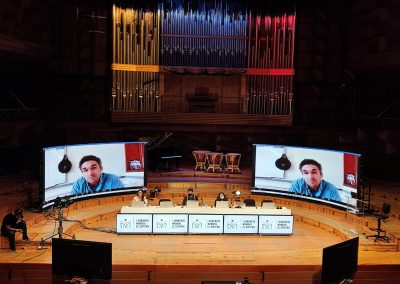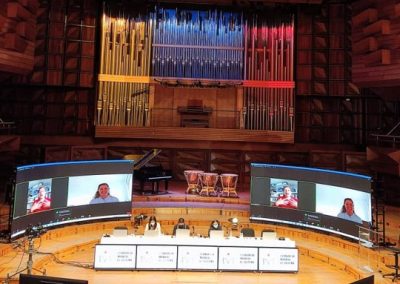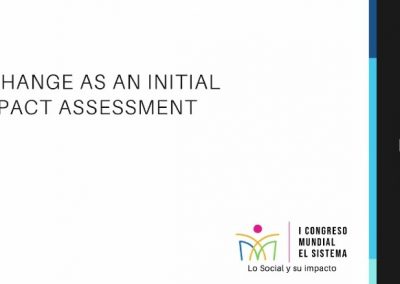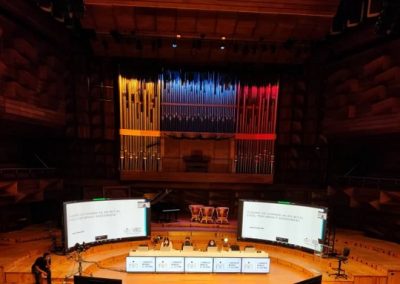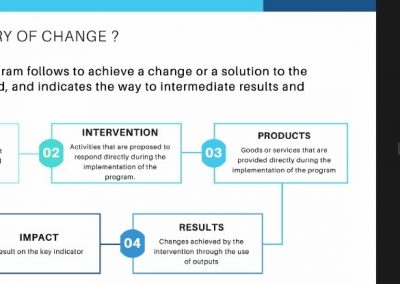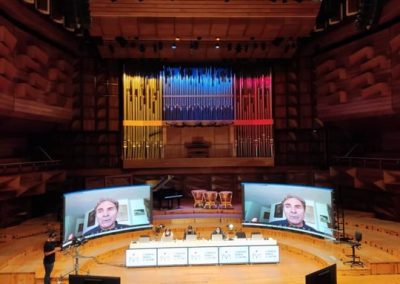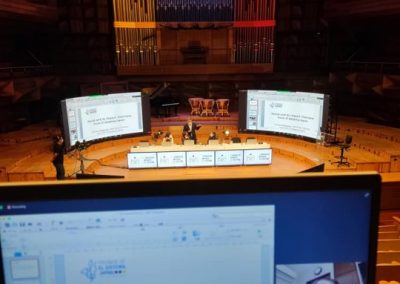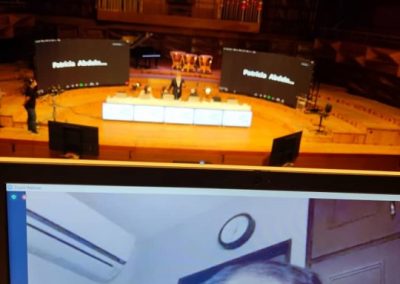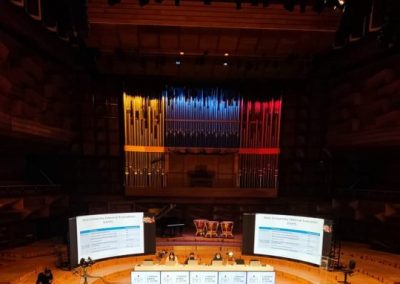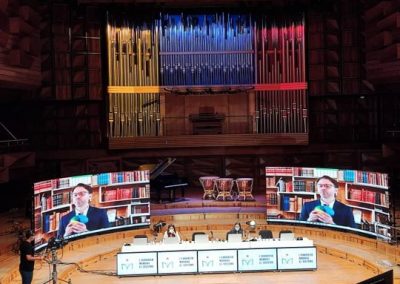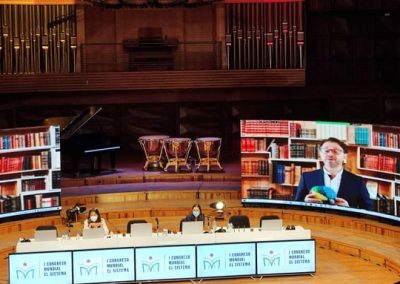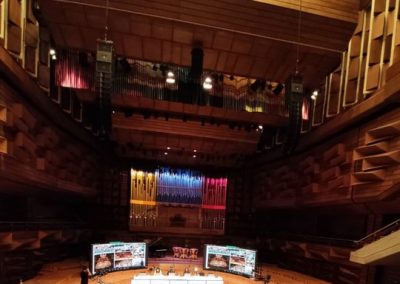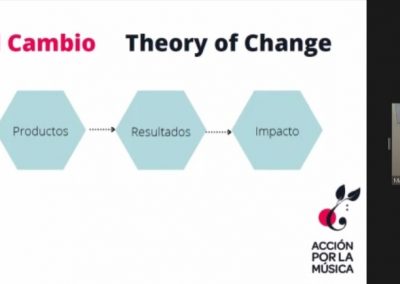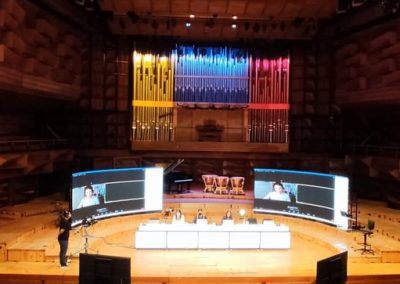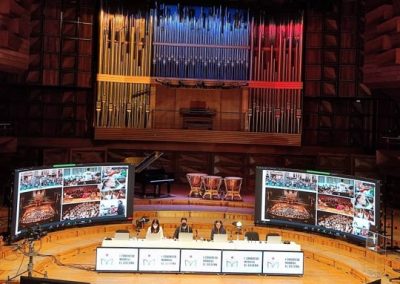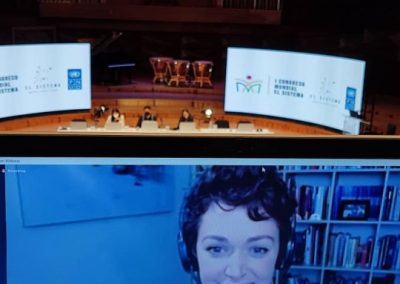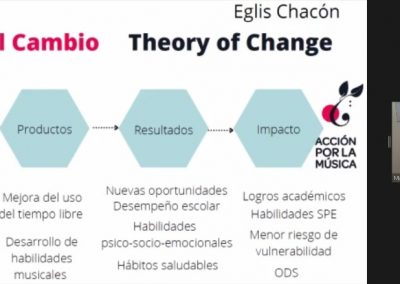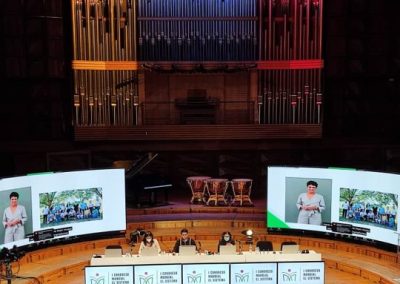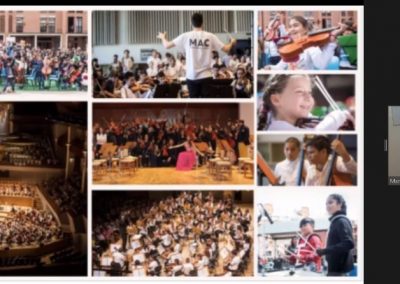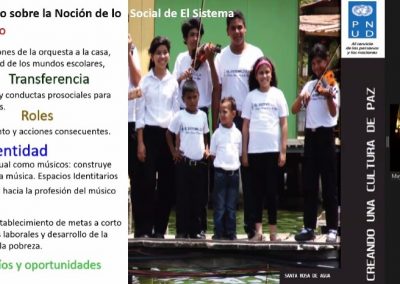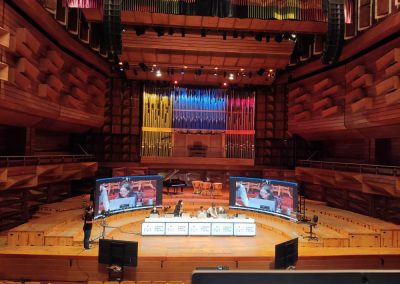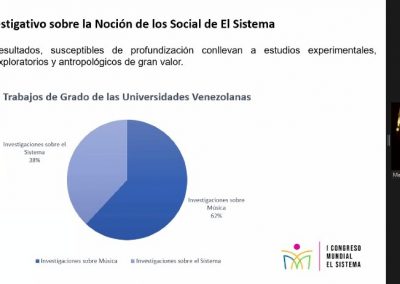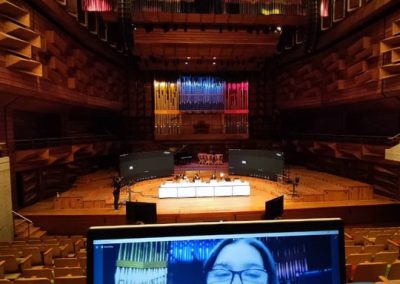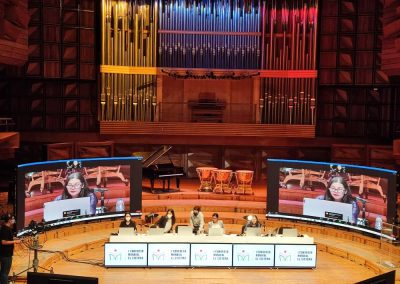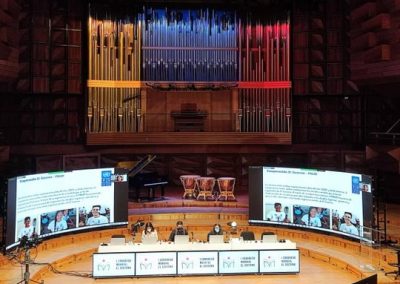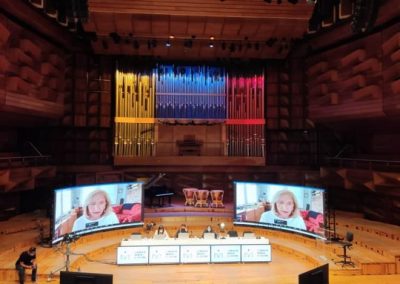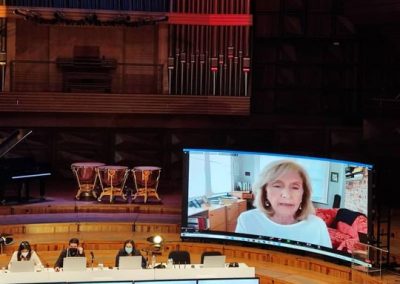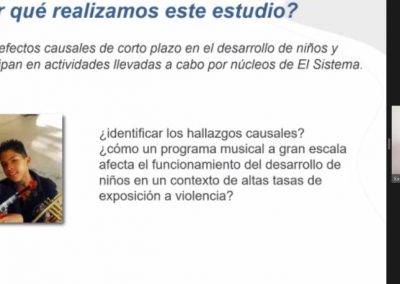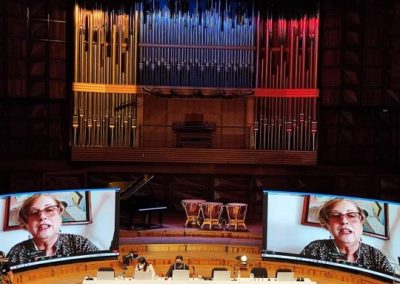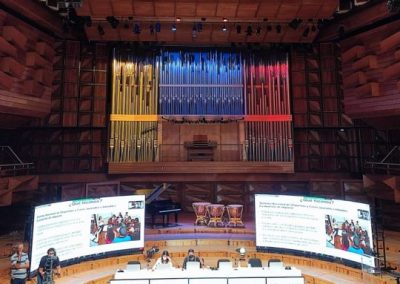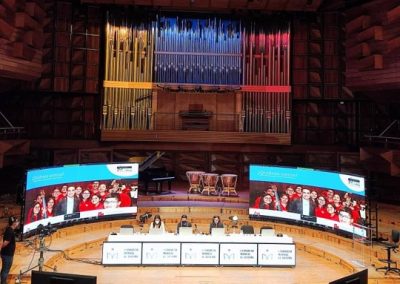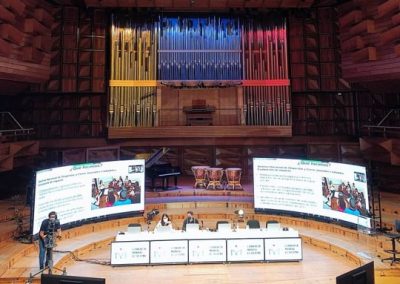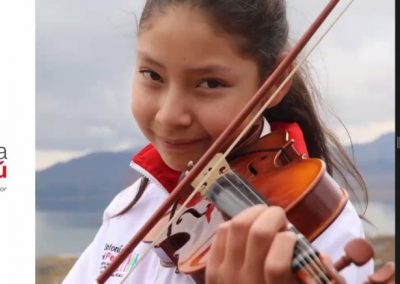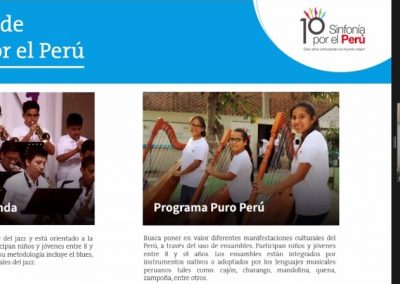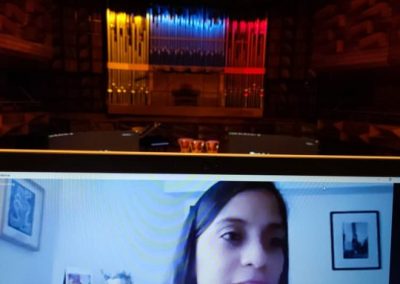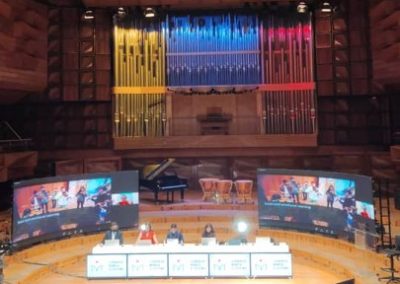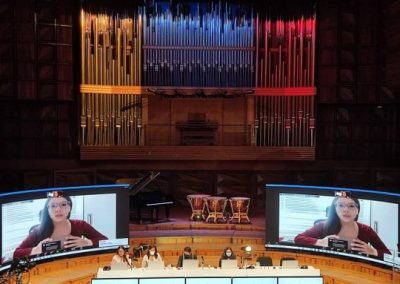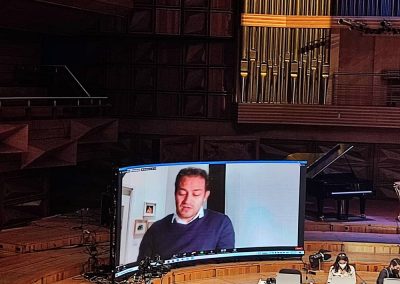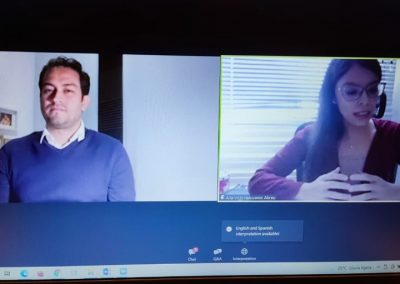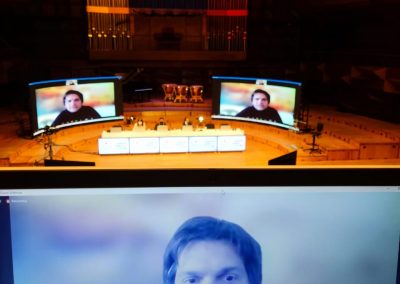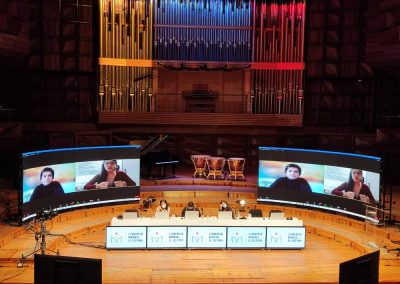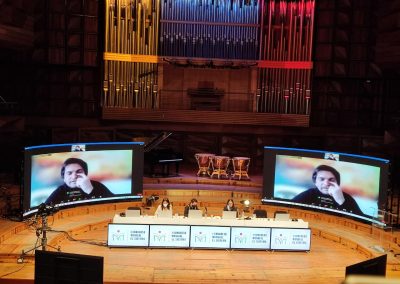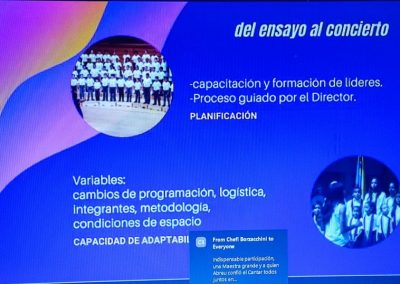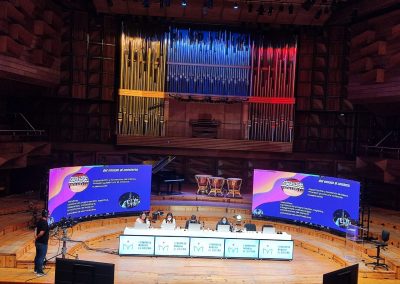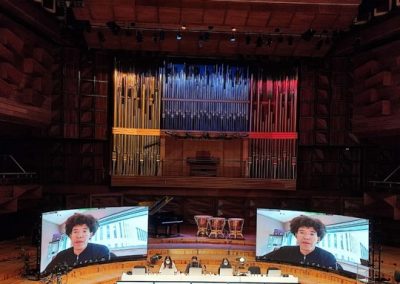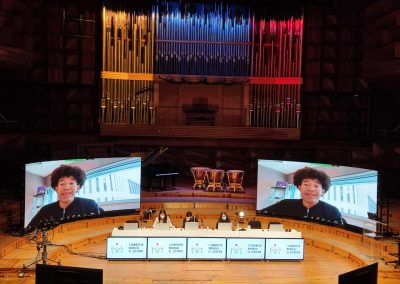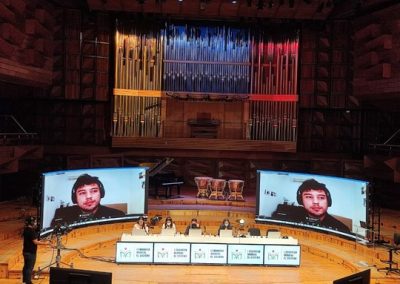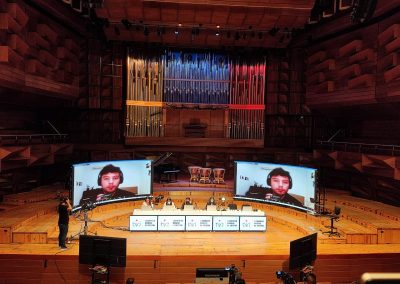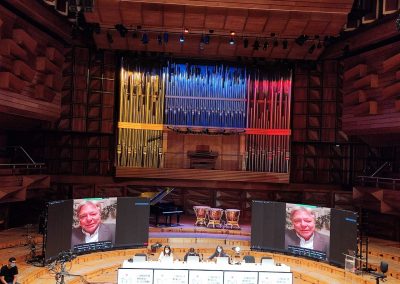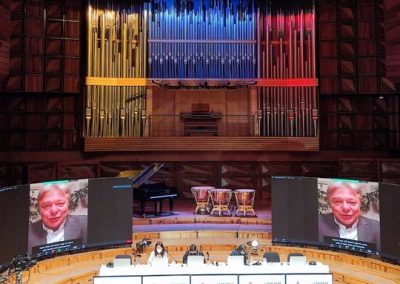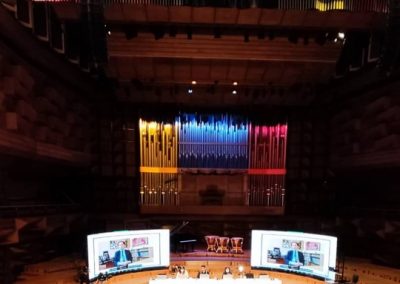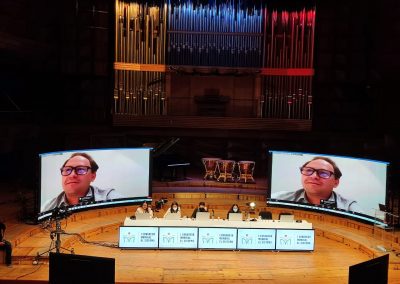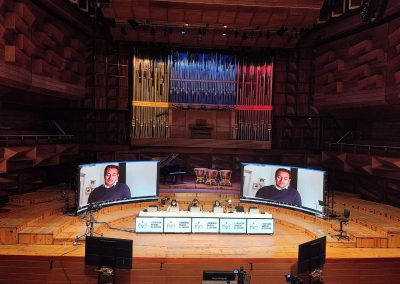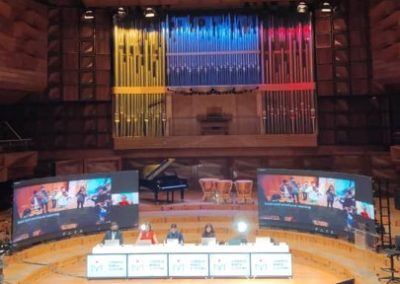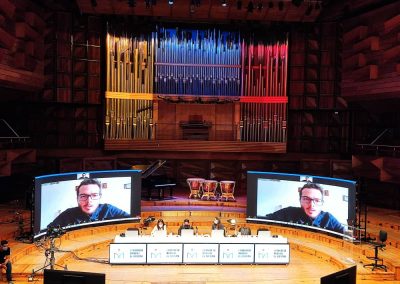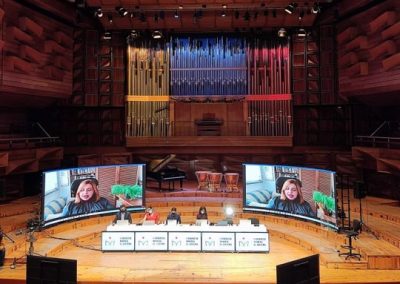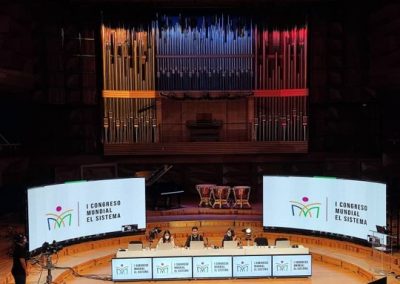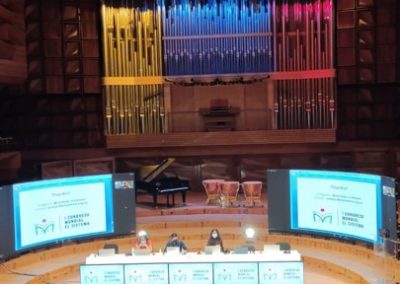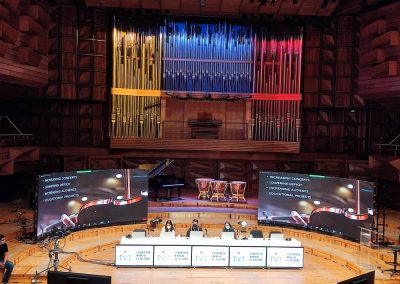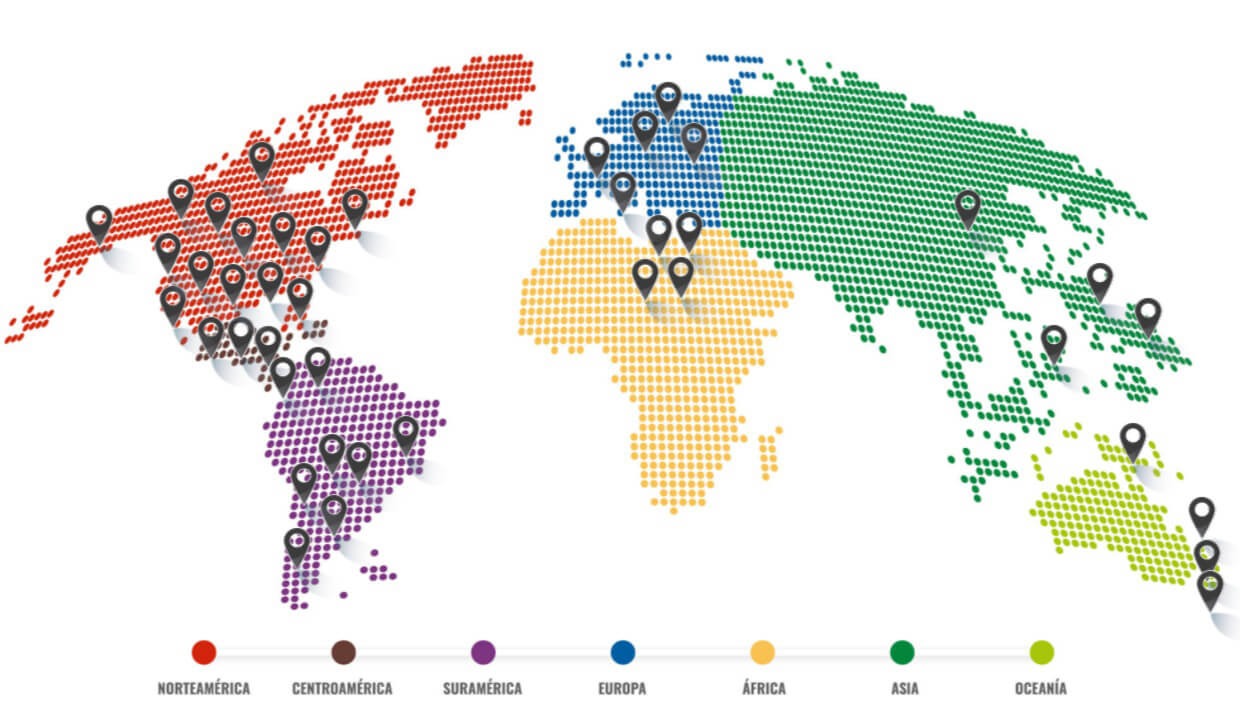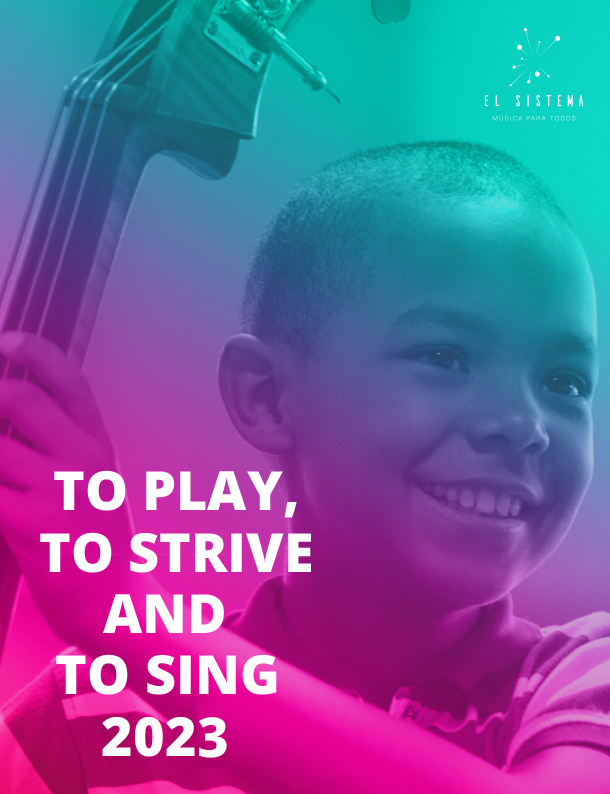Analysis of goals and achievements focused on the second day of the I World Congress El Sistema

A rich agenda for understanding the fundamental aspects in the social development of musical programs and their impact on communities; as well as the review of the artistic processes, the concert and the rehearsal were approached by a score of invited speakers for the exhibitions of this September 29.
Press El Sistema
Mayra León, director of the El Sistema Research and Documentation Center (Cides) and the Simón Bolívar Music Conservatory, began. In this section, the new pedagogical approach was established in the social organization represented by the orchestra, choir, traditional musical ensemble or classroom, which constitute the heritage of common welfare and fraternity.
Then María Guerrero offered her experience from Spain and introduced the theory of change seen from the results generated by musical activities in the use of free time. Gabriela Perona from Sinfonía por el Perú showed the growth and presence of the program, emphasizing the policy of safeguarding, innovation and adaptability. For her part, Eglis Chacón delved into the processes to effectively measure the results of occupying the leisure time of children and young people, based on the Venezuelan model.
Yutaka Kikugawa from El Sistema Japan put into context the changes experienced and the factor of union of the communities without distinction of age that this model has achieved in that country; the sociologist Xiomara Alemán, invited on behalf of the studies supported by the Inter-American Development Bank, offered fundamental data on the assessment of social inclusion from educational work; While Rosicler Gómez, Deputy Resident Representative of the United Nations Development Program in Venezuela (UNDP), updated the results of the study to measure the incidence of musical practice towards the promotion of a culture of peace.
The lectures continued with the participation of Javier Romero, creator of the Bapne Method, who spoke about the changes from the biochemical point of view and their impact on emotional development; the writer Eric Booth, who brought an update on the different investigations carried out by programs inspired by Venezuela in the world; the researcher Tricia Tunstall, who highlighted the important variables to take into account when making social impact measurements; and measurement expert Alix Sarrouy, who shared various thoughts on the usefulness of all these measurements.
Planning and goals to get to the stage
To address the perspective of how the rehearsal and the concert go hand in hand in terms of the artistic programming, in this part of the Congress the teacher Lourdes Sánchez, director of the Simón Bolívar National Choir, was presented in the first place, who highlighted that the choir and the orchestra are a great laboratory for learning with the repertoire. She was followed by Santiago Ossa from Cyprus, who said that the first concert marks the experience of continuity in music.
He successively turned to the directors of international career, Christian Vásquez, who spoke of working with the orchestras at different technical levels for a better aesthetic result; and Diego Matheuz who highlighted the richness that work with an operatic repertoire brings.
On his part, Rafael Payare emphasized the need to know the nature of each orchestra and to work with different complexities with increasingly demanding repertoires; while Diego Nasser recounted his experience as a teacher in Venezuela and made clear the benefit of working on perseverance and a sense of belonging for better artistic and even financial results. As a special guest, maestro Thomas Clamor from Berlin recalled the experience of relaunching the Venezuelan Metals Ensemble, whose achievements are attributed to perseverance and faith in the work plan.
For this September 30, closing day of the I World Congress The system, sponsored by the United Nations Development Program (UNDP) in Venezuela, will present the presentations related to safeguard policies towards children and adolescents who make music; and the mechanisms of sustainability of the projects from the perspective of Fundraising and Associativity.
We continue to build a dream of Maestro José Antonio Abreu, founder of the National System of Youth and Children’s Orchestras and Choirs of Venezuela, whose governing body is the Simón Bolívar Musical Foundation, attached to the Ministry of Popular Power for the Office of the Presidency and Monitoring of the Management of the Government of the Bolivarian Republic of Venezuela.
